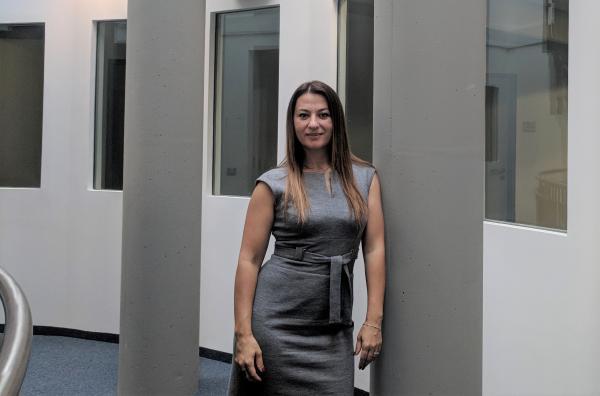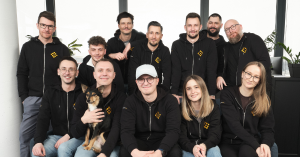One of the most popular uses of technology in healthcare has been to improve it, with many companies and startups around the world finding new solutions to help and aid patients in various ways. Zana Technologies, a conversational AI technology startup founded by Albanian scientists and based in Germany, is one of them.
Zana’s digital solutions such as chatbot and voice assistants aim to innovate and improve healthcare by using ML and AI technology. According to the company’s CEO and co-founder Julia Hoxha, Zana’s development of conversational AI technology has the potential to deliver the next significant wave of innovation in healthcare.
“Remarkable development of Conversational AI technology, including both it in chatbot and voice assistant, is quietly and slowly gaining traction.” Hoxha tells The Recursive.
“Conversational AI applications have already showcased the potential along different verticals with various levels of market adoption – on the one side, they have the power to reduce burden of administrative tasks for medical staff, and to interact with patients better engagement and more human-like communication,” she says.
The company mainly works with traditional healthcare organizations such as various clinics and hospitals in Germany, including the University Clinic Würzburg. The health monitoring AI startup also offers pharma and medtech companies patient companion solutions for remote clinical trial and post-market research.
New partnership for AI-driven telemonitoring for patients with respiratory disease
Zana’s latest project includes the use of digital tools for telemonitoring patients with asthma and Chronic obstructive pulmonary disease (COPD).
The project is implemented together with the Maastricht University Medical Center (MUMC+) and is called TACTICAS (Telemonitoring Asthma and COPD with AI-driven voICe AnalysiS).
In the collaboration, Zana provides a patient companion mobile app, utilizing its proprietary Healthcare Conversational AI technology platform. The in-app companion assists the patient daily to track symptoms and vital signs, as well as to capture their voice through dedicated speech tasks combined with appropriate physical exercise.
“For Zana, this collaboration marks an excellent opportunity to expand its technology in the domain of respiratory diseases and vocal biomarkers. We have been working very closely with the MUMC+ team to shape the patient app and train its voice assistant to fit the patient group, which includes both young and elderly patients,” Hoxha explains.
The collected voice recordings and patient-reported outcomes will then be analyzed by the consortium, which also includes as partners the German Research Center for Artificial Intelligence (DFKI) and Bruno Kessler Foundation (FBK).
According to Hoxha, the goal of the project is to establish a relevant relationship between vocal characteristics and shortness of breath (dyspnea) in COPD and asthma patients.
“COPD and Asthma are conditions of the respiratory system, which impacts the human voice, too. We anticipate that through new AI-driven technology, we are able to find vocal patterns that indicate the grade of dyspnea and possible exacerbations (acute disease worsening),” said Dr. Sami Simons, Pulmonologist at MUMC+, who is heading the TACTICAS study.
Potential of AI and Voice Tech in healthcare
A former postdoctoral research scientist in Medical Informatics at Columbia University, and former research associate at Karlsruhe Institute of Technology, Hoxha is also the author of numerous scientific publications on the intersection of machine learning and semantic technologies, as well as a senior advisor of the Albanian Institute of Science.
Regarding the rise of the use of tech in healthcare, Hoxha believes that new digital technologies such as health monitoring AI will have an increased application and assume a more and more dominant role over time.
“I certainly expect an increasing and more dominant role of new digital technologies in healthcare, including prevention, diagnosis, disease management, and drug discovery,” Hoxha says.
However, there are some segments, such as Voice Tech, which are still fresh and whose potential has yet to be fully realized.
“The Voice Tech for healthcare is still in its infancy and has not reached its maturity especially regarding market adoption. Key challenges include overall user acceptance and high barriers to market transfer, such as long cycles for regulatory approvals and clinical validation,” Hoxha noted.
When it comes to Zana’s digital projects such as TACTICAS, they have the goal of digitizing various processes within clinical research.
“The technology of digital patient companions and vocal biomarkers as in TACTICAS is certainly the next innovation that will help to decentralize and digitize clinical research,” she concluded.








